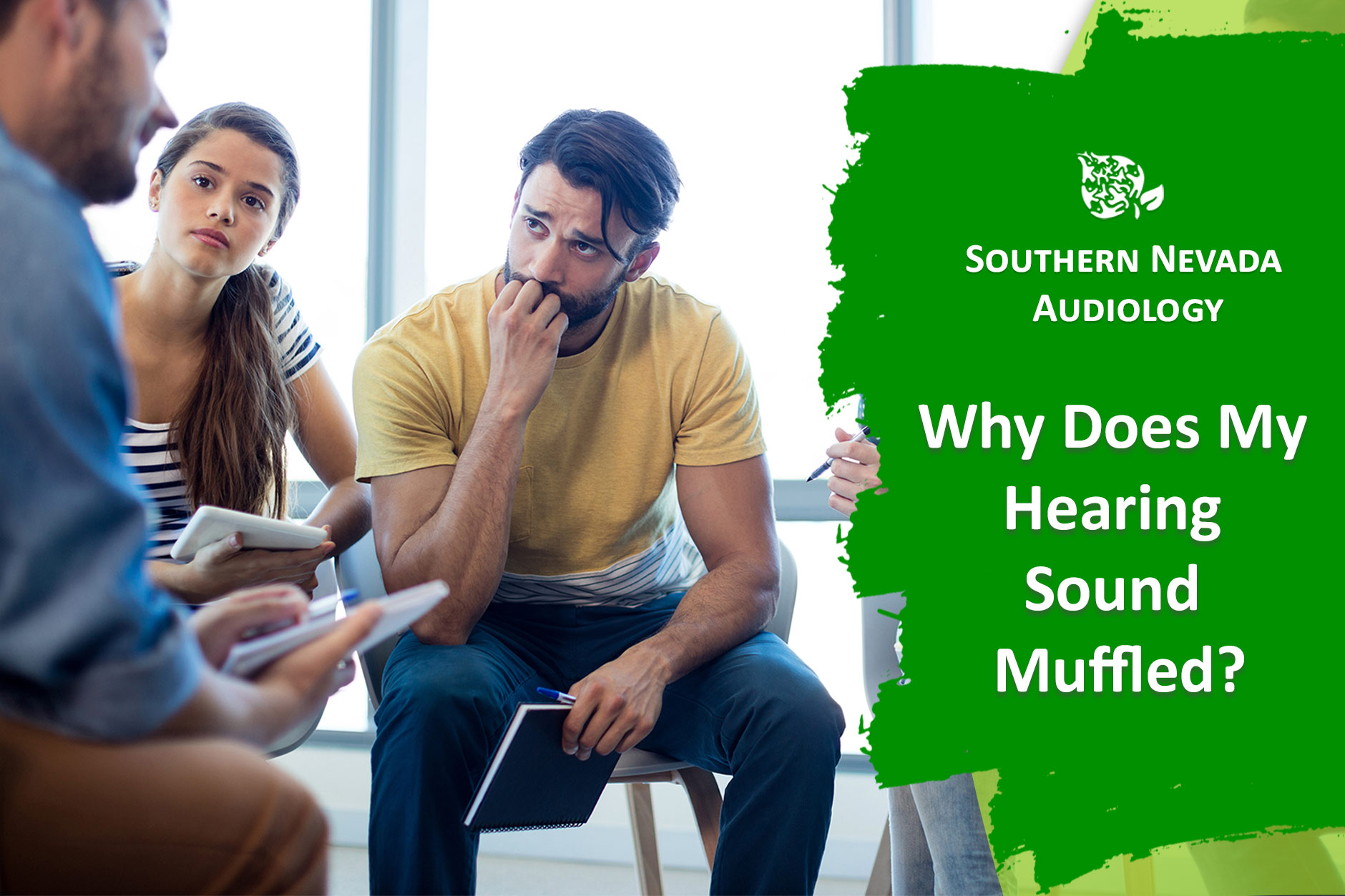Muffled hearing—often accompanied by a feeling of fullness or pressure in one or both ears—can be frustrating and disruptive. Just like smudged glasses blur your view of the world, muffled hearing can make it harder to catch important conversations and enjoy the sounds around you.
The good news is that muffled hearing is often temporary and treatable. By understanding the most common causes and getting the right care, you can get back to hearing clearly. Here’s a look at some of the top reasons behind muffled hearing and what you can do about them.
Loud Noise
Inside your inner ear is the cochlea—a spiral-shaped organ lined with thousands of tiny hair cells that deliver sound signals to your brain. Exposure to loud noise—like concerts, sporting events, or loud machinery—can overwork and damage these hair cells. When that happens, you may notice temporary or even permanent muffled hearing.
Noise-related hearing loss is one of the most preventable causes of hearing damage. You don’t have to skip your favorite events—just protect your ears by wearing well-fitted earplugs or earmuffs to reduce the impact on your hearing.
Earwax Buildup
Earwax (cerumen) protects the ear canal by trapping dirt and bacteria, but too much can block sound from reaching the eardrum. This buildup may result in muffled hearing or a plugged-up feeling in the ear.
Skip cotton swabs and other small objects, as they can push wax farther into the ear and make the blockage worse. Instead, try ear drops to soften the wax or have it safely removed by a professional.
Fluid in the Ear
Fluid buildup in the middle ear is another common cause of muffled hearing. It often follows a cold, allergies, or sinus infection. The trapped fluid prevents sound from moving efficiently through the ear, resulting in muffled hearing or temporary hearing loss.
In many cases, the fluid drains on its own. If it lingers or causes discomfort, a doctor can recommend treatment to relieve pressure and restore normal hearing.
Ear Infections
Middle ear infections (otitis media) are especially common in children but can affect adults as well. Infections cause inflammation and fluid buildup behind the eardrum, which blocks sound and can cause pain, fever, or temporary hearing loss.
Treatment depends on the cause—some infections clear on their own, while others may require antibiotics. Seeking timely care is important to avoid complications and protect long-term hearing health.
Airplane Ear
Airplane ear—also called ear barotrauma—happens when there’s a pressure imbalance between the middle ear and the surrounding environment. This often occurs during airplane takeoff or landing, mountain drives, or scuba diving.
Symptoms may include muffled hearing, ear pressure, popping or crackling sounds, ringing in the ears (tinnitus), and sometimes pain. Most cases are mild and go away shortly after pressure equalizes.
To prevent airplane ear, try chewing gum, swallowing, or yawning during takeoff and landing—these actions help open the Eustachian tube and balance pressure in the ear.
When to Seek Help
While many cases of muffled hearing resolve on their own, ongoing symptoms may signal an underlying issue that needs attention. If your hearing doesn’t return to normal, or if you experience pain, dizziness, or ringing in the ears, schedule an ear exam or hearing test with a qualified Las Vegas hearing care provider. Early intervention can make a big difference in protecting your long-term hearing health.

